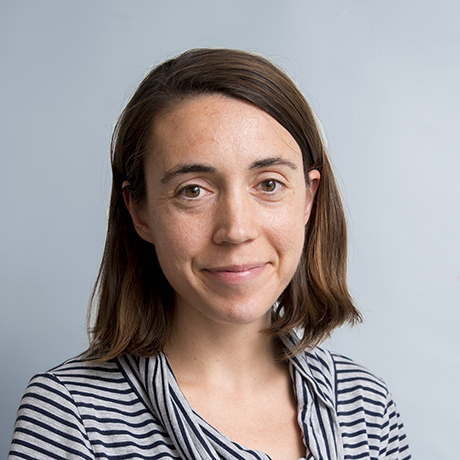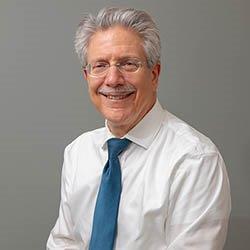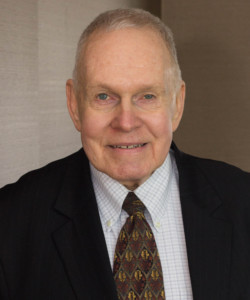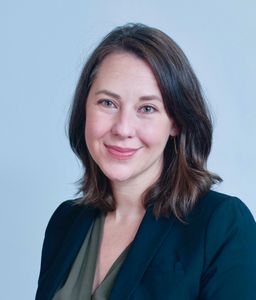Addictions Research Programs

The Department of Psychiatry is involved in a range of research projects and clinical initiatives that seek to understand, support and treat patients living with substance use disorders, which are often comorbid with other psychiatric conditions. Researchers in the department are working to better understand the needs and characteristics of patients with substance use disorders through research spanning from the genetic level to randomized controlled clinical trials.
Through our presence in the Emergency Department, inpatient addiction consult services, and our robust outpatient addiction treatment, the Psychiatry Department is deeply involved in BMC’s effort to fight the addiction crisis. Additionally, in March 2017, BMC launched the Grayken Center for Addiction, made possible by a $25 million grant from the Grayken family. The creation of this center recognizes BMC as a leader in the field of addiction treatment. The Department seeks to align our work with the Grayken Center and to strengthen our commitment to improving the lives of people affected by substance use disorders.
Current Research:
HEAL (Helping to End Addiction Long-term) is a multi-site NIH Initiative aiming to make evidence-based preventive intervention services available and accessible to all persons who experience risk for opioid and other substance misuse or disorder. Here at BMC, in conjunction with MGH, psychiatric researchers are conducting a longitudinal observational study assessing the impact of treatment of psychopathology on the development of OUD, SUD, and nicotine use disorders in young people (16 to 30 years) engaged in behavioral health treatment.
R61 Grant: With drug overdose being a leading cause of youth overdose, there is no standard approach or intervention design to minimize the risk of overdose and prevent death. The R61 project at BMC is a pilot two-arm cluster randomized control trial, at the provider level, aiming to assess the acceptability and feasibility of establishing a brief youth overdose prevention intervention in pediatric primary care.
Meet the research team:
 Amy Yule, MD, is Vice-Chair for Addiction Psychiatry at Boston Medical Center (BMC) and an Associate Professor in Psychiatry at Boston University Chobanian & Avedisian School of Medicine. Dr. Yule is triple-board certified by the ABPN in Adult, Child and Adolescent, and Addiction Psychiatry. Her research interests include the investigation of risk factors for adolescent-onset substance use disorders, risk factors associated with risky behaviors in youth with substance use disorders such as overdose, and the impact of medication treatment for youth with substance use disorders and co-occurring psychiatric illness. She currently has NIH funding as the multiple principal investigator for an observational study investigating the link between treatment of psychopathology among youth and onset of substance use disorder, multiple principal investigator for a randomized controlled trial evaluating a brief youth overdose prevention intervention in pediatric primary care, and co-investigator on a randomized controlled trial of a stepped-care intervention to address maternal depression among families involved in Headstart services. She is also the multiple principal investigator of the Wellness and Recovery After Psychosis Without Walls (WWW) Program, which offers and evaluates community-based care for youth with first-episode psychosis, and oversees the Addiction Psychiatry Treatment Program which provides outpatient care to adults living with co-morbid substance use and mental health disorders. For more information about Dr. Yule’s work, please visit her BUSM profile. Amy Yule, MD, is Vice-Chair for Addiction Psychiatry at Boston Medical Center (BMC) and an Associate Professor in Psychiatry at Boston University Chobanian & Avedisian School of Medicine. Dr. Yule is triple-board certified by the ABPN in Adult, Child and Adolescent, and Addiction Psychiatry. Her research interests include the investigation of risk factors for adolescent-onset substance use disorders, risk factors associated with risky behaviors in youth with substance use disorders such as overdose, and the impact of medication treatment for youth with substance use disorders and co-occurring psychiatric illness. She currently has NIH funding as the multiple principal investigator for an observational study investigating the link between treatment of psychopathology among youth and onset of substance use disorder, multiple principal investigator for a randomized controlled trial evaluating a brief youth overdose prevention intervention in pediatric primary care, and co-investigator on a randomized controlled trial of a stepped-care intervention to address maternal depression among families involved in Headstart services. She is also the multiple principal investigator of the Wellness and Recovery After Psychosis Without Walls (WWW) Program, which offers and evaluates community-based care for youth with first-episode psychosis, and oversees the Addiction Psychiatry Treatment Program which provides outpatient care to adults living with co-morbid substance use and mental health disorders. For more information about Dr. Yule’s work, please visit her BUSM profile. |
 Michael Dawes, MD, is Clinical Professor in Psychiatry at Boston University Chobanian & Avedisian School of Medicine. Dr. Dawes is a graduate of University of North Carolina School of Medicine and has Board certifications in both Addiction Psychiatry and Addiction Medicine. He has been recipient of a Mentored Clinical Scientist Development Award from National Institute on Drug Abuse (NIDA) examining developmental trajectories of children of substance-use disordered parents who are at high-risk for developing substance use disorders. Dr. Dawes has have been Principal Investigator and Co-Investigator on clinical and prospective cohort studies funded by National Institutes of Health (NIH), examining relationships among impulsivity, substance use disorders, and suicidal behavior in adolescents and adults. He has conducted clinical trials in SUD adolescents and adults. His implementation science foci include improved access to medications that treat Substance Use Disorders, and enhancing engagement in SUD treatment, especially for racial and ethnic minorities. He has experience in mentoring residents and fellows to pursue careers in Addiction Treatment. Dr. Dawes has keen interest in fostering development of the next generation of clinician-researchers who treat addiction and co-occurring mental health disorders. For more information about Dr. Dawes’s work, please visit his BUSM Profile. Michael Dawes, MD, is Clinical Professor in Psychiatry at Boston University Chobanian & Avedisian School of Medicine. Dr. Dawes is a graduate of University of North Carolina School of Medicine and has Board certifications in both Addiction Psychiatry and Addiction Medicine. He has been recipient of a Mentored Clinical Scientist Development Award from National Institute on Drug Abuse (NIDA) examining developmental trajectories of children of substance-use disordered parents who are at high-risk for developing substance use disorders. Dr. Dawes has have been Principal Investigator and Co-Investigator on clinical and prospective cohort studies funded by National Institutes of Health (NIH), examining relationships among impulsivity, substance use disorders, and suicidal behavior in adolescents and adults. He has conducted clinical trials in SUD adolescents and adults. His implementation science foci include improved access to medications that treat Substance Use Disorders, and enhancing engagement in SUD treatment, especially for racial and ethnic minorities. He has experience in mentoring residents and fellows to pursue careers in Addiction Treatment. Dr. Dawes has keen interest in fostering development of the next generation of clinician-researchers who treat addiction and co-occurring mental health disorders. For more information about Dr. Dawes’s work, please visit his BUSM Profile. |
 John Renner, MD, is Professor of Psychiatry, Boston University Chobanian & Avedisian School of Medicine, and Associate Chief of Psychiatry for the VA Boston Healthcare System. He graduated from Yale University and Case University School of Medicine. Since 1979 he has been working at the Boston VA where he currently directs their outpatient addiction treatment program. In addition, he is Associate Director of the Boston University Medical Center General Psychiatry Residency Program and Director of their Addiction Psychiatry Residency. Dr. Renner has written and lectured extensively on the treatment of alcoholism and drug addiction. He is the immediate past-President of the American Academy of Addiction Psychiatry, and Vice-Chair of the American Psychiatric Association Council on Addiction Psychiatry. In 2010, Dr. Renner co-edited the Handbook of Office-Based Buprenorphine Treatment for the American Psychiatric Press, Inc. He is a member of the Data Safety Monitoring Board for the Clinical Trials Network of the National Institute on Drug Abuse, a member of the Clinical Advisory Committee of the Physician Health Service of the Massachusetts Medical Society, a Consultant to the Department of Psychiatry, Massachusetts General Hospital, and a member of the faculty of the Harvard Medical School Division on Addictions. He is also former medical director of the SAMHSA funded Physicians Clinical Support System-Buprenorphine. For more information about Dr. Renner’s work, please visit his BUSM Profile. John Renner, MD, is Professor of Psychiatry, Boston University Chobanian & Avedisian School of Medicine, and Associate Chief of Psychiatry for the VA Boston Healthcare System. He graduated from Yale University and Case University School of Medicine. Since 1979 he has been working at the Boston VA where he currently directs their outpatient addiction treatment program. In addition, he is Associate Director of the Boston University Medical Center General Psychiatry Residency Program and Director of their Addiction Psychiatry Residency. Dr. Renner has written and lectured extensively on the treatment of alcoholism and drug addiction. He is the immediate past-President of the American Academy of Addiction Psychiatry, and Vice-Chair of the American Psychiatric Association Council on Addiction Psychiatry. In 2010, Dr. Renner co-edited the Handbook of Office-Based Buprenorphine Treatment for the American Psychiatric Press, Inc. He is a member of the Data Safety Monitoring Board for the Clinical Trials Network of the National Institute on Drug Abuse, a member of the Clinical Advisory Committee of the Physician Health Service of the Massachusetts Medical Society, a Consultant to the Department of Psychiatry, Massachusetts General Hospital, and a member of the faculty of the Harvard Medical School Division on Addictions. He is also former medical director of the SAMHSA funded Physicians Clinical Support System-Buprenorphine. For more information about Dr. Renner’s work, please visit his BUSM Profile. |

Dr. Huiping Zhang’s research laboratory conducts research on the genetic, epigenetic and pharmacogenetics of substance dependence and related disorders. He utilizes a number of approaches to better understand the effect of gene variants and DNA methylation changes that may influence an individual’s predisposition for substance dependence, with the ultimate goal of identifying innovative approaches for the prevention and treatment of substance dependence and comorbid disorders. For more information about Dr. Zhang’s work, please visit his BUSM profile. |

Eric Devine, PhD, is the director of the Clinical Studies Unit in the Department of Psychiatry at Boston Medical Center. Dr. Devine serves as Vice-Chair for the Boston Medical Center and Boston University Medical Campus Institutional Review Board, and he is the Director of the IRB Internship training program. He teaches addiction treatment courses for the Mental Health Counseling and Behavioral Medicine Program at Boston University Chobanian & Avedisian School of Medicine. Dr. Devine is a member of the Motivational Interviewing Network of Trainers (MINT). He has participated in numerous NIAAA and NIDA-funded multi-site trials testing medications for the treatment of substance use disorders and has had a role in two SAMHSA-funded grants focused on training and dissemination of SBIRT. Dr. Devine also had a role in the development of psychosocial treatments for addiction and has co-authored several treatment manuals and online behavioral platforms for use in multi-site trials testing medications for substance use disorders. Special Interests: Medication development, clinical trials, psychosocial treatments for substance use disorder, motivational interviewing, cognitive behavioral therapy, universal screening for substance use, ethics of human subjects’ research, and manualized treatment approaches for substance use disorders. For more information about Dr. Devine’s research, please visit the Clinical Studies Unit webpage. For more information about Dr. Devine’s work, please visit his BUSM profile. Abigail (Abby) Batchelder (she/her), PhD, MPH is a clinical psychologist with a background in public health. Dr. Batchelder’s research has been funded by the NIH, SAMHSA, Harvard, UCSF, private foundations, and industry; she has been awarded 15 unique grants as principal investigator. Dr. Batchelder’s research aims to collaboratively identify, adapt, and implement evidence-based interventions with and for underserved people with unmet psycho-behavioral health needs, including people with and vulnerable to HIV, people who use drugs, and sexual and gender minority people with a goal of increasing behavioral health equity. For more information about Dr. Batchelder’s research, please visit the Behavioral Health Equity webpage. For More information about Dr. Batchelder’s work, please visit her BUSM profile.
|





